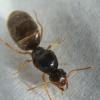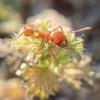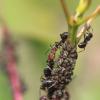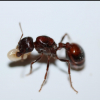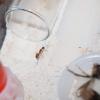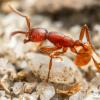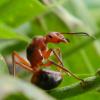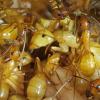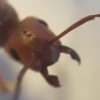Laws that protect wildlife are important. And those laws should be reviewed by informed scientists who understand the ecology, they should be reviewed by farmers and people in industry who may have concerns about pests and they should be reviewed by the public who may want to enjoy that wildlife.
The legal situation with ants in the USA isn't a disaster, in my opinion, but the hobby of antkeeping is rapidly making the currents laws less than ideal. It's piecemeal, and can feel capricious and arbitrary. It's fine to buy a stinging desert ant queen by mail, but going to my friends house in CT to collect non-invasive queen native to the Bronx isn't. But, if I get that same queen from distant Niagara Falls ... well that's fine since it's the same state... Even though it's a different ecology.
I feel bad for those of you who live in really little states.
There is also a lot of confusion over what is and isn't legal. If you search of "ant keeping law" ... this forum is the first five results. The permit process seems designed for university scientists doing studies.
I'm not expert enough to outline what the ideal laws would be or how they would work, but I do know lawmakers are lazy. If we want change we need to basically write the laws for them, have legal and biology experts look at them and then send out the changes we want.
Has anyone tried to organize to do this?
I'm managing to have a lot of fun with ants with things as they are, but I'd cheerfully support some legal changes that would make the transport of common, native, non-pest species within their natural region legal in more cases. And possibilities for discouraging collecting wild mature colonies of uncommon, native species. (this seems like what people should need a permit to do) ... some clarity on the difference between collecting queens and digging up the forest.
And most important clear regional lists about what's good to keep and what isn't. Maybe we could even have some exotic species allowed. But, I leave that to biologists to decide.
I have questions about keeping massive invasive colonies as pets. It just feels like a bad idea IMO.
I have some questions more than anything:
1. Should it be legal to keep invasive pest colonies?
2. Should it be legal to sell or hand out invasive pest queens?
3. Should it be legal to sell and move native species within US regions?
4. Should it be legal to sell and move native species anywhere in the country?
5. Are there any non-native species that it should be legal to keep?
6. Should it be legal to collect mature wild colonies under any circumstances?
7. Should wild colony collecting be legal for any native species?
8. ... for less common species?
9. Should we just leave it alone?
When I was a kid I caught a carpenter ant queen (camponotus pennsylvanicus) at my house in Cleveland. I didn't know how to take care of ants at all so she didn't live long. But I did bring her in a mayo jar (with a jam jar placed inside of it so that it formed a thin layer of dirt for the colony I expected to form) to my grandma's house in PA for the summer. I was a criminal. I hope the statue of limitations has expired. The queen died after a few weeks. IDK turn me into the police I guess.
I didn't find any queens in CT that day, but discussing it later multiple people were like "oh that's illegal you could go to jail" that scared me so I won't be doing it again. But I think it's kinda stupid to be honest. If it isn't I'm willing to be convinced otherwise. I know that that no one is chasing 7 years olds to toss them in prison for keeping bugs in jars... but it's just bad to have laws on the books that need to be enforced "sometimes" based on... what? It's confusing.
Edited by futurebird, July 15 2021 - 5:42 AM.






